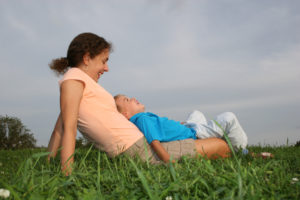Last week I wrote about the first three stages of attachment according to Vancouver-based psychologist, Dr. Gordon Neufeld. This week I will summarize the final three stages.
The Fourth Stage of Attachment: Significance
Unconditional love is the greatest gift we can give our children. It doesn’t mean that we become permissive “jelly fish” parents that give our children everything they want, in order that they are seemingly never distressed, it means that we accept our children for who they are and support them in their passions. If children feel completely accepted and loved for who they are, they feel significant. This applies to all relationships – to be loved, through words and actions, for the unique person that you are (faults and all) deepens a relationship. When you feel secure in your love-relationships (parent-child, spousal, friendships etc.) you feel this love even when you’re not around this person. For children who feel this deep attachment with their parent(s), they tend to feel more content and confident even when they are not in their parents’ physical presence. For teenagers, who may be feeling more disconnected from their parents, they may seek to find significance through social media sites such as Facebook. However, this is superficial significance and having 500+ “friends” on Facebook does not mean that one really has 500+ closely attached relationships. In fact, Facebook, in the teenage years, is not concerned with accepting you just the way you are – there is a lot of pressure to portray just the “right image” through posy pictures, witty comments, and getting lots of “thumbs up – Like” signs of approval. When the previous three stages of attachment are present: proximity, sameness and loyalty, the fourth one of significance feels authentic and is real.
The Fifth Progressive Stage of Attachment: Love
There is a progression to these stages and with each stage comes more depth. The fifth stage of love in a deeply connected relationship is not the same as “love at first sight”. This kind of romantic love has not progressed through the previous four stages. However, whether it be a parent-child relationship, a deep friendship, or a romantic relationship, if the previous four stages have been attained, then this next stage of love will be the nourishing kind of love that we all need. This is the kind of love, that can be conveyed through a hug, a squeeze on the shoulder, a smile and a wink. Again, if a child/teenager does not feel this kind of love from his/her parents he/she will look to friends to fill this void, and often these peers are not the ones who have demonstrated the previous four stages.
The Sixth and Final Stage of Attachment: Being Known
Being Known is the final and deepest stage of attachment. To share oneself at this level requires deep trust to be open and vulnerable. This level of attachment requires the previous five stages of attachment to be demonstrated on a regular and consistent basis. I believe that teenagers and parents often drift apart because there is a belief that they don’t really need or want to be around their parents anymore. Thus, the connection becomes more distant. Even as children get older, there is often the temptation to stop seeing them into bed. The belief is that they now know how to read themselves stories and get themselves into bed, but bed-time is the opportune time for connection. Older children still love to have parents read to them, or give them a cuddle while they’re reading. Parents can still hang out on their teenager’s bed, if it’s been a routine that’s continued from childhood. One may not read chapter books together anymore, but flipping through magazines and chatting about the latest movies, cars, fashion, etc. creates proximity and sameness. Being known requires the willingness to be vulnerable. Brené Brown, author of many books such as The Courage to be Imperfect, discusses the importance of being vulnerable in order to have a deep attachment through her fabulous TEDTalks titled: The Power of Vulnerability which has been viewed by over 6 million people and is well worth the 20 minutes.
Have a wonderful week connecting and deepening your relationships through these six stages,
Warmly,
Want to Connect?
Subscribe now to receive free weekly parenting tips and inspiration.









One thought on “The Stages of Attachment & Brené Brown’s TEDtalks on The Power of Vulnerability”
Comments are closed.